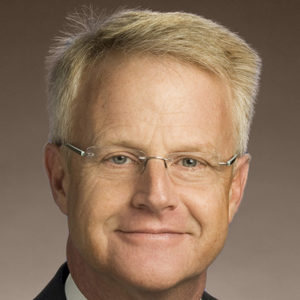Lawmaker faces opposition in trying to open up state lottery records
State Sen. Jon Lundberg, R-Bristol, is facing stiff opposition in his effort to open up state lottery records.

State Sen. Jon Lundberg, R-Bristol, doesn’t buy the lottery’s arguments that retailers will leave the system if sales were made public.
According to a story in the Bristol Herald Courier, the Tennessee Lottery says it would lose $19.5 million in revenue if it had to reveal lottery sales by retailer, information that is public in other state lotteries, including in two states bordering Tennessee.
The reasoning? The risk of robberies to stores will increase if sales were revealed, and other retailers would know how much they are making through such sales.
Lundberg is sponsoring the legislation (S.B. 563/ H.B. 575) along with state Rep. John Crawford, R-Kingsport.
The Herald Courier interviewed lottery officials in North Carolina and Virginia, where retail sales of the state lottery product is open. Those officials said they knew of no problems with robberies related to public access to the information, nor of state retailers who have concerns about the information being public.
As of yet, no evidence of robberies in other states based on the information being public has been presented by the lottery.
The newspaper also interviewed retailers in Bristol who sold lottery tickets:
The Herald Courier spoke with three lottery retailers along Volunteer Parkway, the main corridor in and out of Bristol, Tennessee. All three said they aren’t concerned about potential crime and would continue selling lottery products, regardless of a law change.
Sommer Bellamy is a manager of the Roadrunner Shell station, at the corner of Driftwood Lane and Volunteer Parkway. Bellamy said crime doesn’t concern her because the store has a safe into which cash is deposited multiple times a day. Employees cannot access the safe, even if demanded.
Bellamy estimated that one-quarter of all Roadrunner sales come from lottery tickets.
“As much money as we make off it, it would be hard to just quit selling them,” she said. “Our business would drop tremendously.”
Abaid Ali owns the Exxon station at the corner of Craig Drive and Volunteer Parkway, which has a large Tennessee Lottery sign out front that reads “Play here.”
“It wouldn’t bother me at all,” he said of the potential that his store’s lottery sales would be public.
The opposition is publicly being led by the Tennessee Lottery Retailer Advisory Board, which voted unanimously against making the information public, and the Tennessee Fuel & Convenience Store Association.
Lundberg told the Bristol newspaper he does not believe the arguments. The state already reveals the top-selling retailers in the state with no robbery issues. But he plans to amend the bill nevertheless to require only the release of sales data by zip code.
Read the full story here: Tenn. Lottery interest groups oppose open records law change
Lottery retail sales were made exempt when the lottery was established, along with a wide range of data about the state government agency. Rebecca Paul Hargrove, the chief executive of the Tennessee Lottery who had experience at lotteries in Florida and Georgia, worked with lawmakers to set up the system, including the exemptions.
The law (T.C.A. 4-51-124) exempts any information concerning lottery sales made by lottery retailers, trade secrets, security measures, systems or procedures, security reports, proposals for professional service until the proposals have been evaluated, private information of employees such as bank account information, identifying information of winners, such as addresses.
The exemption also makes confidential all information relative to the hiring or retention of the CEO or president, and all information relative to prospective lottery games.
Meetings of the corporation are open under the Open Meetings Act, but portions of the meetings devoted to confidential information can be closed.





